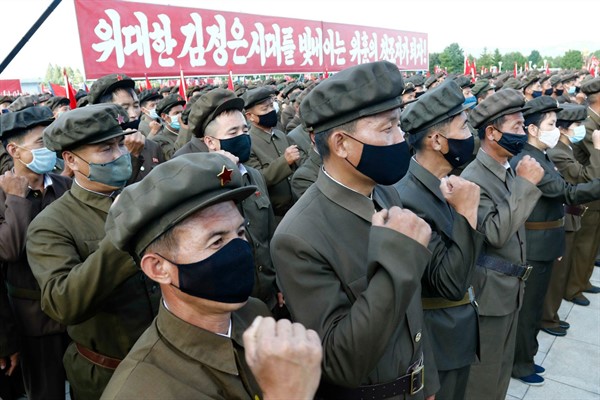North Korea’s young dictator is not known for issuing mea culpas. Yet, when Kim Jong Un announced last month that the ruling Workers’ Party of Korea will convene for its eighth congress in January 2021, he also acknowledged that the regime’s current economic strategy is not working. The party will thus adopt a new “five-year plan for national economic development” when it meets next year.
In one sense, this is a hopeful signal, given that such pragmatic admissions of failure are rare for North Korean leaders. But the announcement also underscored the depth of the country’s economic troubles. It is a symbolic sign of just how radically Pyongyang has had to shift its economic ambitions downward over the past few years, with the global recession amid the COVID-19 pandemic posing an added difficulty.
Of course, Kim does not have to worry about competing in elections. But like all dictators, he must still seek some level of buy-in from the population, and he has staked a great deal of credibility on his promises to improve North Koreans’ living standards. In his first major policy speech after coming to power, in early 2012, he vowed that his people would never have to tighten their belts again. Indeed, in the subsequent few years, available data indicates the North Korean economy grew substantially—albeit from a low level—mostly owing to vastly increased trade with China and Kim’s willingness to allow continued growth in the country’s market economy.

